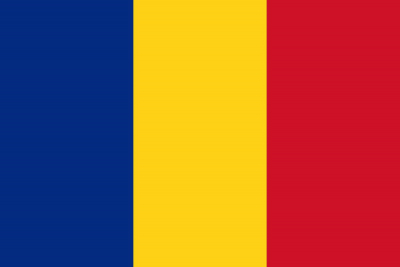The Tripartite Pact, also known as the Berlin Pact, was an agreement between Germany, Italy, and Japan signed in Berlin on 27 September 1940 by, respectively, Joachim von Ribbentrop, Galeazzo Ciano and Sabur Kurusu. It was a defensive military alliance that was eventually joined by Hungary (20 November 1940), Romania (23 November 1940), Bulgaria (1 March 1941) and Yugoslavia (25 March 1941) as well as by the German client state of Slovakia (24 November 1940). Yugoslavia's accession provoked a coup d'tat in Belgrade two days later. Germany, Italy and Hungary responded by invading Yugoslavia. The resulting Italo-German client state, known as the Independent State of Croatia, joined the pact on 15 June 1941.
The Tripartite Pact was, together with the Anti-Comintern Pact and the Pact of Steel, one of a number of agreements between Germany, Japan, Italy, and other countries of the Axis Powers governing their relationship.The Tripartite Pact was directed primarily at the United States. Its practical effects were limited since the Italo-German and Japanese operational theatres were on opposite sides of the world, and the high contracting powers had disparate strategic interests. As such the Axis was only ever a loose alliance. Its defensive clauses were never invoked, and signing the agreement did not oblige its signatories to fight a common war per se.
The Kingdom of Romania (Romanian: Regatul României) was a constitutional monarchy that existed in Romania from 13 March (O.S.) / 25 March 1881 with the crowning of prince Karl of Hohenzollern-Sigmaringen as King Carol I (thus beginning the Romanian royal family), until 1947 with the abdication of King Michael I of Romania and the Romanian parliament's proclamation of Romania as a socialist People's republic.
From 1859 to 1877, Romania evolved from a personal union of two vassal principalities (Moldavia and Wallachia) under a single prince to an autonomous principality with a Hohenzollern monarchy. The country gained its independence from the Ottoman Empire during the 1877–1878 Russo-Turkish War (known locally as the Romanian War of Independence), when it also received Northern Dobruja in exchange for the southern part of Bessarabia. The kingdom's territory during the reign of King Carol I, between 13 (O.S.) / 25 March 1881 and 27 September (O.S.) / 10 October 1914 is sometimes referred as the Romanian Old Kingdom, to distinguish it from "Greater Romania", which included the provinces that became part of the state after World War I (Bessarabia, Banat, Bukovina, and Transylvania).
With the exception of the southern halves of Bukovina and Transylvania, these territories were ceded to neighboring countries in 1940, under the pressure of Nazi Germany or the Soviet Union. Following the abolishment of the 1923 constitution by King Carol II in 1938, the Kingdom of Romania became a de facto absolute monarchy, only to become a military dictatorship under Ion Antonescu in 1940 after the forced abdication of King Carol II, with his successor, King Michael I being a figurehead with no effective political power. The country's name was changed to Legionary Romania.
The disastrous World War II campaign on the side of the Axis powers led to King Michael's Coup against Ion Antonescu in 1944, as a result of which the Kingdom of Romania became a constitutional monarchy again and switched sides to the Allies, recovering Northern Transylvania. The influence of the neighbouring Soviet Union and the policies followed by Communist-dominated coalition governments ultimately led to the abolition of the monarchy, with Romania becoming a Soviet satellite state as the People's Republic of Romania on the last day of 1947.

1940Nov, 23
World War II: Romania becomes a signatory of the Tripartite Pact, officially joining the Axis powers.
Choose Another Date
Events on 1940
- 17May
Brussels
World War II: Germany occupies Brussels, Belgium. - 12Jun
Erwin Rommel
World War II: Thirteen thousand British and French troops surrender to Major General Erwin Rommel at Saint-Valery-en-Caux. - 5Jul
Vichy France
World War II: The United Kingdom and the Vichy France government break off diplomatic relations. - 10Jul
Vichy France
World War II: The Vichy government is established in France. - 11Jul
Vichy France
World War II: Vichy France regime is formally established. Philippe Pétain becomes Prime Minister of France.

 English
English  español
español  français
français  português
português  русский
русский  العربية
العربية  简体中文
简体中文 